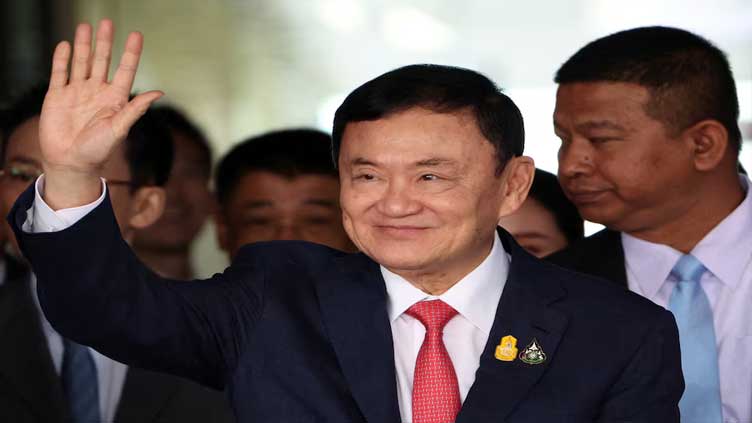Thailand to indict influential former PM Thaksin over royal insult

World
Ex-PM becomes highest profile royal insults case
BANGKOK (Reuters) - Thailand's attorney-general will indict former Prime Minister Thaksin Shinawatra for allegedly insulting the monarchy, an official said on Wednesday, in a setback to a political heavyweight whose loyalists are currently in government.
The complaint, lodged by the royalist military that ousted the government of his sister, Yingluck Shinawatra, had stemmed from an interview the influential tycoon gave to foreign media in 2015. Other charges against him include violating a computer crime law.
"The attorney-general has decided to indict Thaksin on all charges," spokesperson Prayuth Bejraguna said, adding the former premier would need to appear before court on June 18.
Thaksin, 74, denies wrongdoing and has repeatedly pledged his loyalty to the crown, criticism of which is forbidden under Thailand's lese-majeste law, which is one of the world's strictest of its kind.
Thaksin would be the highest-profile case among more than 270 prosecutions in recent years under the controversial law, which carries a maximum jail term of 15 years for each perceived insult of the royal family.
His lawyer Winyat Chartmontri said a comprehensive defence had been prepared and his client would seek bail. He also questioned the authenticity of the video of the interview in which the alleged insult was made.
Thaksin did not appear at Wednesday's hearing because he had been infected with COVID-19, he said. "We have to proceed based on our rights in a criminal case," Winyat told a press conference. "Thaksin Shinawatra is ready to prove his innocence in the justice system."
CENTRAL FIGURE
Thaksin, the founder of the populist juggernaut Pheu Thai, has seen his family's parties win all but one election since 2001, with three Shinawatra governments toppled by coups or court rulings.
The billionaire made a dramatic return to Thailand in 2023 from 15 years of self-imposed exile, during which he remained a central figure throughout repeated bouts of political upheaval.
He was convicted of abuse of power and conflicts of interest and sentenced to eight years in prison, but was released on parole in February after just six months in detention.
His return and relatively short time in detention, spent entirely in hospital, has fueled speculation he had struck a deal with his bitter rivals in the conservative establishment and military which he has long blamed for trying to stifle pro-Thaksin governments. His allies have denied any such deal.
Pheu Thai leads the current government, with Thaksin's business ally Srettha Thavisin the prime minister and daughter Paetongtarn Shinawatra the party chief.
The announcement of his indictment comes days after an opposition lawmaker and an activist musician were given jail terms for alleged insults of the crown. The palace typically does not comment on the law.
The popular opposition Move Forward Party, the biggest in parliament, has found itself in hot water over its campaign to amend the law, with the Constitutional Court due to decide whether to dissolve the party, which would see bans for its leadership.
A separate complaint with another body is seeking life bans for 44 current and former Move Forward legislators over the amendment plan, which it has since been forced to abandon.
Commentators are anticipating Thaksin will seek to wield significant political influence from behind the scenes, raising the possibility of another confrontation with his powerful rivals in the establishment. He insists he has retired from politics.


